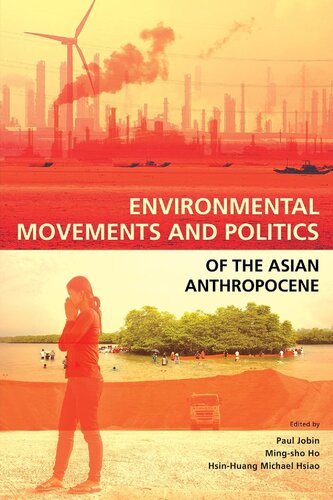

Most ebook files are in PDF format, so you can easily read them using various software such as Foxit Reader or directly on the Google Chrome browser.
Some ebook files are released by publishers in other formats such as .awz, .mobi, .epub, .fb2, etc. You may need to install specific software to read these formats on mobile/PC, such as Calibre.
Please read the tutorial at this link: https://ebookbell.com/faq
We offer FREE conversion to the popular formats you request; however, this may take some time. Therefore, right after payment, please email us, and we will try to provide the service as quickly as possible.
For some exceptional file formats or broken links (if any), please refrain from opening any disputes. Instead, email us first, and we will try to assist within a maximum of 6 hours.
EbookBell Team

5.0
70 reviews“This collection provides a powerful and sophisticated analysis of how environmental movements influence politics in Asia, and how politics influences movements.” -- John S. Dryzek, Centenary Professor, University of Canberra
"This important book reflects the challenges and questions currently foremost in scholars’, activists’ and policy-makers’ minds―the Anthropocene, environmental justice, China’s Belt and Road Initiative, and post-politics―all addressed through the lens of environmental movements in Asia. -- Jonathan Rigg, Professor at the School of Geographical Sciences, University of Bristol
“How have authoritarianism, democratization and political change affected environmentalism in East and Southeast Asia? How have environmental mobilization and demands for environmental justice at the grassroots influenced politics there? These are among the vital questions answered by this insightful and well-crafted volume.” --Paul G. Harris, Chair Professor of Global and Environmental Studies, Education University of Hong Kong
“This book shows convincingly that the concept of Anthropocene is as relevant in Asia as anywhere.” -- Philip Hirsch, Emeritus Professor of Human Geography, University of Sydney
“Despite its claims to universality, the Anthropocene concept remains largely a Western phenomenon. This book is crucial in correcting this view by putting environmental movements in Asia center stage.” -- Eva Horn, Professor of Literature and Cultural History, University of Vienna